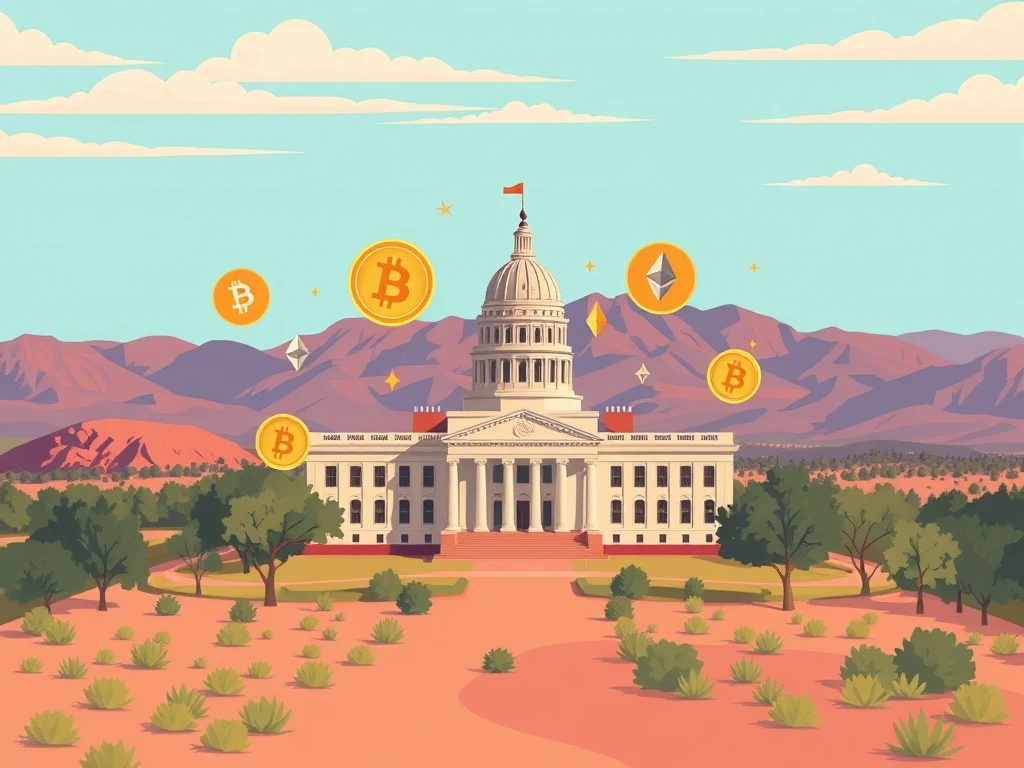Arizona Pioneers Law: State to Keep Unclaimed Crypto, Fund Bitcoin Reserve

Arizona has taken a significant step in the world of digital assets. Governor Katie Hobbs recently signed a new measure into law, establishing a framework for how the state will handle unclaimed cryptocurrency. This move marks Arizona as a key player in defining state-level approaches to managing digital wealth.
Understanding the Arizona Crypto Law
On May 7, Governor Katie Hobbs signed House Bill 2749. This law introduces a specific process for digital assets that are considered abandoned within the state. Under the new Arizona crypto law, if the owner of digital assets fails to respond to official communications for at least three years, the state can legally claim ownership of those assets.
What Happens to Unclaimed Crypto?
The law outlines what the state can do with the unclaimed crypto once it takes possession. State custodians are authorized to manage these digital assets actively. This includes:
- Staking the crypto to earn rewards.
- Receiving airdrops associated with the assets.
Any proceeds generated from staking, airdrops, or potentially the sale of these assets will be deposited into a newly created fund. This fund is specifically named the Bitcoin and Digital Asset Reserve Fund.
The Bitcoin Reserve Fund Explained
A crucial aspect of this legislation is the nature of the Bitcoin Reserve Fund. The bill’s sponsor, Representative Jeff Weninger, emphasized that this fund is designed to operate without using taxpayer money or existing state funds. The reserve is intended to grow through the management of abandoned digital assets, not through public allocation.
Weninger stated, “This law ensures Arizona doesn’t leave value sitting on the table and puts us in a position to lead the country in how we secure, manage, and ultimately benefit from abandoned digital currency.” He also added that the structure protects property rights while providing the state tools to account for this new asset category.
Why This Law is Different (and Gives Hope)
Interestingly, Governor Hobbs had previously vetoed a similar bill, Senate Bill 1025, just days before signing HB 2749. The key difference cited for the veto of SB 1025 was concerns over using *public funds* to invest in what she called “untested assets” like Bitcoin.
The signing of HB 2749, which relies on unclaimed assets rather than public money, suggests a more cautious but open approach to digital assets. This move has led to speculation that Governor Hobbs might be more receptive to other pending crypto legislation, such as Senate Bill 1373. SB 1373 proposes allowing the state treasurer to allocate a portion of Arizona’s Budget Stabilization Fund (up to 10%) into Bitcoin.
Arizona’s action follows a trend seen in other states. For instance, New Hampshire recently signed a law permitting its treasury to invest state funds in cryptocurrencies exceeding a $500 billion market capitalization, which currently includes only Bitcoin.
Implications for State Crypto Management
This Arizona crypto law sets a precedent for how states might handle digital assets where owners cannot be located. By creating a pathway for the state to take custody and manage these assets, it addresses a gap in traditional unclaimed property laws which were not designed for digital currencies. The focus on a dedicated Bitcoin Reserve Fund funded by the assets themselves, rather than taxpayer money, appears to be a model that balances potential state benefit with fiscal conservatism.
Conclusion: Arizona’s Bold Step
Arizona’s decision to enact a law allowing the state to keep unclaimed crypto and establish a non-taxpayer-funded Bitcoin Reserve Fund is a pioneering step. It highlights the increasing need for legal frameworks around digital assets at the state level. While challenges remain in implementing such laws and ensuring property rights are genuinely protected, Arizona is clearly positioning itself at the forefront of navigating the complexities of state crypto management.










